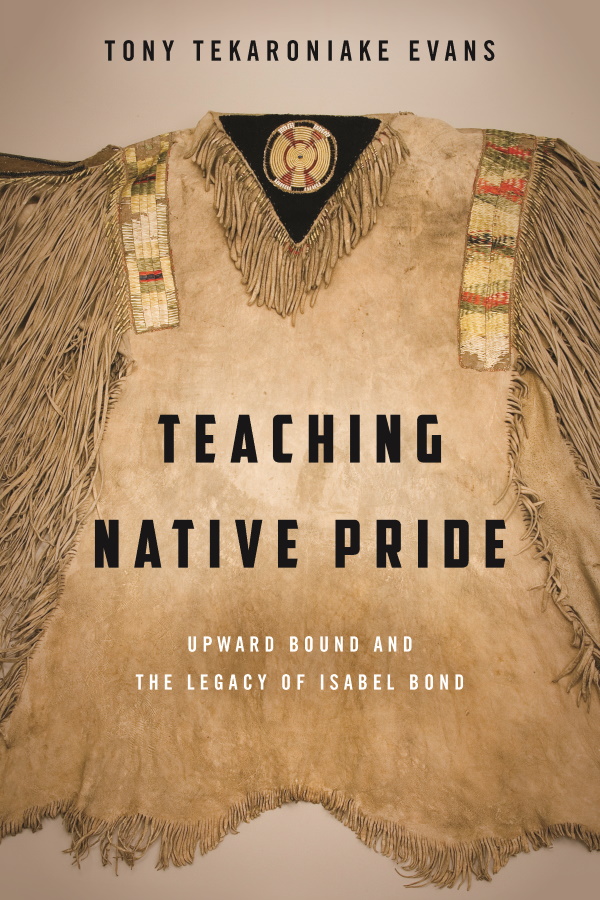Based on interviews with students and staff, Teaching Native Pride: Upward Bound and the Legacy of Isabel Bond by Tony Tekaroniake Evans, offers first-hand accounts by Native people and highlights how one person can make a difference. In it, Native and non-Native voices tell the story of the federally sponsored Upward Bound program at the University of Idaho, intertwining personal anecdotes and memories with accounts of the program’s inception and goals, as well as regional Native American history and Isabel Bond’s Idaho family history. Dedicated to helping low-income and at-risk students attend college, its unique curriculum celebrated that heritage, helping Native students break cycles of poverty, isolation, and disenfranchisement, and non-Indians gain a new respect for Idaho’s first peoples.
“It was a very different time back then. Non-natives received white lunch tickets, but Native students received green lunch tickets with INDIAN written on them. My brothers were told they could not date white girls. I think because of the racism that existed on the reservations we were continuously reminded that we were different. We internalized this idea that we were less than white kids, that we were not as capable. Even today there are low expectations for native students,” says Chris Meyer, part of Upward Bound’s inaugural group and the first Coeur d’Alene tribal member to receive a Ph.D. She now oversees the tribe’s Department of Education.
Upward Bound came to Moscow, Idaho, in 1969. Isabel Bond became director in the early 1970s and led the program there for more than three decades. Those who enrolled in the experimental initiative—part of Lyndon B. Johnson’s War on Poverty—were required to live within a 200-mile radius and be the first in their family to pursue a college degree. Living on the University of Idaho campus each summer, they received six weeks of intensive instruction in mathematics, laboratory sciences, composition, literature, foreign languages, and study skills.
“A lot of people have always thought that Indians were just in the way, but the truth is that they have historically been denied the opportunity to be their best,” Bond said. She brought Native students into academic life in ways they previously had not been included. Her actions demonstrate the importance of community, the practices of reciprocity, and mutual respect. A non-Native person, Bond educated herself about the Niimíipuu and Native issues and, as a result, forged lasting relationships with Native community members. Many of her students grew into leadership roles in Indian Country.
Ketchum, Idaho, author Tony Evans is an award-winning reporter and columnist for the Idaho Mountain Express. He is an enrolled Bear Clan member of the Province of Quebec’s Kahnawake Mohawk Community.

